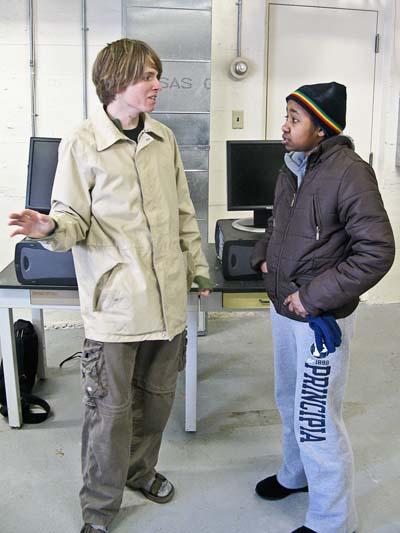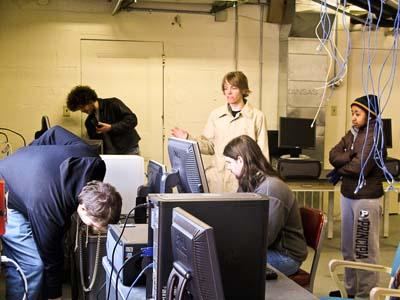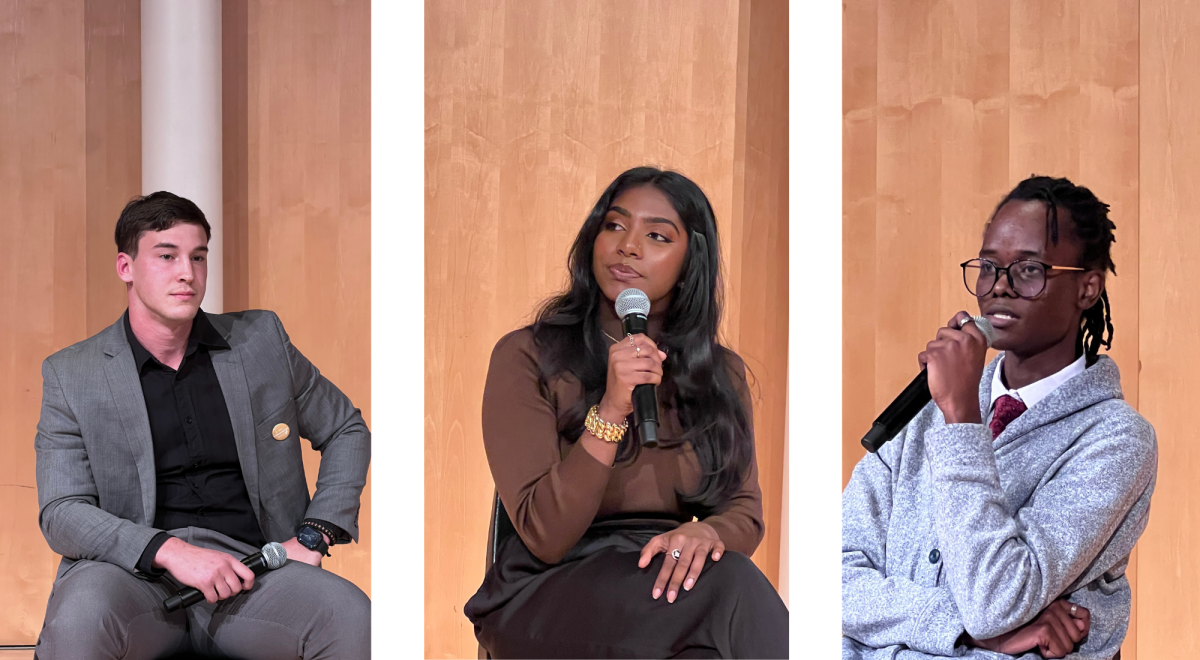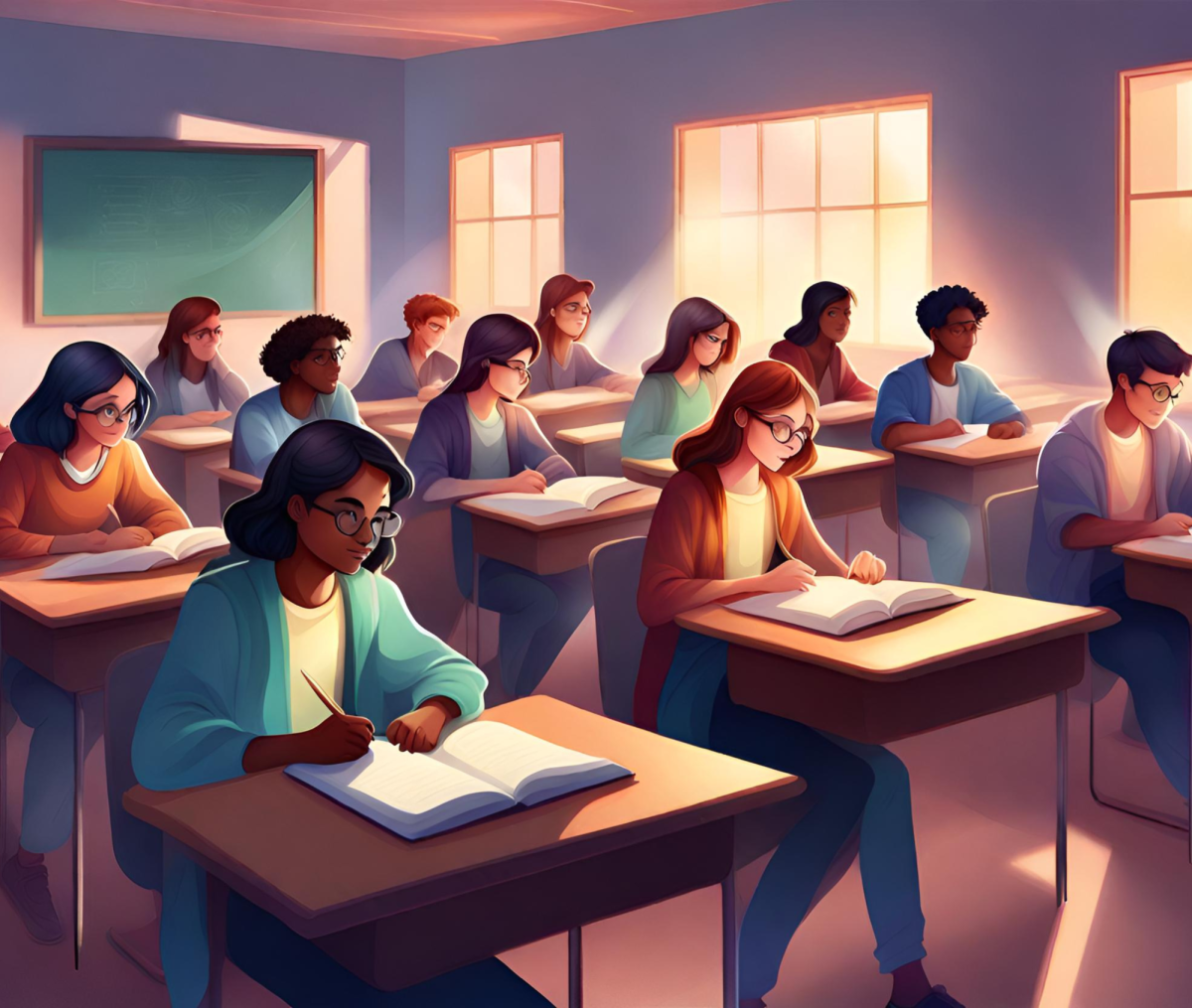Need a computer? You’re in luck. Free Geek is a national organization now with an outpost on campus that takes donated and broken computers, repairs them, loads them up with Linux, and gives them to students who need them.
Senior Theodore Lindsey, the president and founder of Principia’s Free Geek, volunteered at the original Free Geek headquarters in Portland, Oregon. The Free Geek official slogan is: “Helping the needy get nerdy.” Lindsey, who was elected all-campus tech head last spring, said, “One of my goals as an incoming freshman was to start something like this. Everything we’ve done in Free Geek is the result of a need.”
Visit the group’s Wiki site at http://10.130.35.98/mediawiki/index.php/Main_Page. This site provides the names of current group members (anyone is welcome to join), information on projects, applications for computers, customer feedback, and other useful information. This user-editable Wiki site gives a structural backbone to the operation and will become a how-to book, enabling students to fix their own problems.

Lindsey said Free Geek has been relying on CIS’s hardware so far (CIS has donated 15 PCs already), but CIS has to leave some scrap for their own repairs, so Free Geek now accepts donations from students and off-campus sources. Because resources are limited, computers are received on a first-come, first-serve basis, although Free Geek would prefer a need-based approach. Junior James Koval, Free Geek’s current acting vice president, said that so far the majority of recipients are freshman and international students without computers.
Are the computers and repairs really free? Sort of. Since computers have to be disposed of in a certain way, students pay $1 to Free Geek in order to claim ownership and take responsibility for disposing of it properly. Free Geek gives the dollar back to CIS to complete the sale. As long as people leave Linux running on the computer, repairs should be easy and inexpensive. Lindsey added, “We are giving these in free spirit.”
Free Geek, headquartered in the Science Center “Positron Lab,” hopes to become an official club. When it does, Richard Booth, the chief technology officer for both campuses, will be the faculty/staff sponsor. Koval said, “Another direction the soon-to-be club will take is to start a mentoring program by creating a list of computer-savvy people and matching them up with people who want to be computer-savvy.”
Koval described part of the process of fixing up a computer: “We get a computer and [test it] with Linux on a flash drive to see if it runs. If it’s actually broken, we take it apart and replace the broken part.” If the computer does not run, Free Geek finds a “lighter” version of Linux (good for the older laptops) that may not have all the detailed applications for every program.

According to Koval, Linux is an operating system like Windows and Mac; it’s the system that makes programs work. Fortunately, Linux is “free,” or open source, meaning you can edit anything in it. A free operating system is great for students because it can be tailored to practical life needs, instead of what a large corporation guesses users might want. The licensing only guarantees your right to share it with everyone – free of charge.
This philosophy has been manifested in an operating system called Ubuntu – South African for “humanity towards others.” Anyone who wants to contribute code can add it to Ubuntu, the conglomeration of “good will” which increases usability, makes it user-friendly, and adds new programs enabling users to “do things you would never imagine.”
Junior Darline Ambugo got a Free Geek computer earlier this quarter. She said, “Yeah, I really like it. No viruses, I find it faster than the school computers because of the program they have used.” Lindsey said this system is successful because no one writes viruses since it is all free and open. A group of people that work for Ubuntu can edit out any viruses in the code. Said Koval, “Because it is so free, we can do whatever we want with it.” Unlike Windows, Linux has no barriers, meaning there is no hierarchy to battle for modification approval.
Linux runs on any hardware. Even the Principia solar car uses Linux on the telemetry systems (sensors and computers that run on the car) because it is fast, efficient, and customizable.
Lindsey said they chose Linux for Free Geek because Windows would have made Free Geek pay for licensing. Said Lindsey, “A vast number of us had already been playing around with [Linux], so we wanted to keep playing and take the learning opportunity.” Free Geek also wanted to encourage the idea that people should be able to use their computers however they want to, not in the ways that some large corporation decides might be practical. While Free Geek is not a direct result of Ubuntu philosophy, it demonstrates the kind of spirit that encourages “helping the needy get nerdy.”








